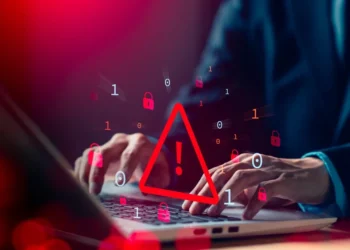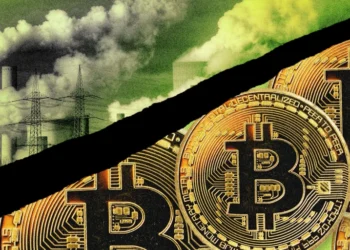Vitalik talks about memes again: Is there any room for imagination in meme coins?
Original title: "What else could memecoins be?"
Original author: Vitalik
Original translation: Rhythm Workers, BlockBeats
Ten years ago, two weeks before the Ethereum project was publicly announced, I Bitcoin magazine published this article arguing that issuing tokens could be a new way to fund important public projects. The idea is: society needs ways to fund worthwhile large-scale projects, markets and institutions (including companies and governments) are the main technologies we have today, but they work in some cases and fail in others .
Issuing new tokens seems to be a third type of large-scale funding technology, which is different enough from markets and institutions to succeed and fail in different places—— So it can fill some important gaps.

People who care about cancer research AntiCancerCoin can be held, accepted and traded; people who care about environmental protection can hold and use ClimateCoin, and so on. The tokens people choose to use will determine which causes are funded.
Today in 2024, a major topic of discussion in the "cryptocurrency space" seems to be meme coins. We've seen meme coins before, starting with Dogecoin in 2015, and "Dogecoin" is a major topic of the 2020-21 season. This time, they are heating up again, but this has upset many people because meme coins do not bring anything particularly new and interesting to the table. In fact, it's often the opposite: Apparently, some Solana meme coins have been openly racist in the extreme lately. Even non-racist meme coins seem to just go up and down in price without leaving any valuable contribution in their wake.
People are frustrated:

Even longtime Ethereum philosopher Polynya is very, very unhappy:

One answer to this conundrum is to shake our heads and send a moral signal about how disgusted and opposed we are to this stupidity. To some extent, this is the right thing to do. But at the same time, we can also ask another question: if people value fun, and financialized games seem to provide that fun at least sometimes, is it possible that there is a more positive version of this whole concept?
Charity Coins
The most interesting coin I have ever seen is one that has a large portion of A coin supply (or some ongoing charging mechanism) dedicated to coins for a charity of some kind.
A year and a half ago, there was a (now no longer active) coin called "GiveWell Inu" that donated proceeds to GiveWell. For the past two years, there has been a coin called “Fable of the Dragon Tyrant” that has supported cultural projects related to anti-aging research and other causes. Unfortunately, both of these are far from perfect: GiveWell Inu appears to be no longer maintained, and the other has some very annoying core community members who keep bugging me, making me currently uninterested in mentioning them again.
More successfully, as soon as I acquired half of the Dogelon Mars token supply, I gave it away to the Methuselah Foundation , the Methuselah Foundation and the Dogelon Mars community appear to have developed a positive relationship with each other, retroactively converting $ELON into a charity coin.
It felt like there was an unclaimed opportunity here to try and create something correct and, more lasting. But ultimately, I think even that creates some fundamental limitations, and we can do better.
Robin Hood Game
In principle, people participate in meme coins because of (i) their value may rise, (ii) they feel democratic and open to anyone, and (iii) they are fun. We could divert large amounts of the memecoin supply to support public goods that people value, but this has no direct benefit to the participants themselves and actually comes at the expense of (i) and, if not done well, (ii) ) for the price. Is there anything we can do to improve both aspects of the experience for the average user?
The answer to (iii) is simple: don’t just make a coin, but make a game. But make a game that's actually meaningful and fun. Don’t think Candy Crush on the blockchain; think World of Warcraft on the blockchain.
"Ethereum researcher in World of Warcraft ”. If you kill one, you'll get 15 silver coins, 61 copper coins, and a 0.16% chance of getting some "Ethereum Relay Data." Don't try this in real life.
So, what about the Robin Hood part? When I travel to low-income Southeast Asian countries, a common narrative I hear is that some people or their family members were previously poor but became moderately wealthy in 2021 through the play-to-earn feature of Axie Infinity. Of course, things are a little less rosy for Axie Infinity in 2022. But even so, my impression is that if you take into account the play-to-earn nature of the game, the net financial benefit is negative on average for high-income users, but may (emphasis on may!) be positive for low-income users. This seems like a good attribute: if you have to be financially cruel to someone, do it to those who can afford it, but have a safety net to protect low-income users and even try to keep them lower than when they came in better.
Regardless of how well Axie Infinity does this in particular, the intuitive feeling is that (i) if the goal is to satisfy people's desire to have fun, we should make something more than simple Coins that are copied and pasted, but games that are more complex and interesting, and (ii) games that make it financially better for low-income players in particular are more likely to leave their communities better off than when they came in. Charity coins and games could even be combined: one of the game's features could be a mechanism whereby players who successfully complete a task can vote on which charities to allocate issued funds to.
That said, making a truly fun game is a challenge - check out some of the negative comments about Axie's fun side, and what they've done since A positive perspective on how to progress over time. The team I personally have the most confidence in making interesting crypto games is 0xPARC, as they have successfully made two (!!) crypto games (first Dark Forest, then FrogCrypto) that players are willing to play purely for fun, not Out of a desire to make money. Ideally, the goal is to create a co-created environment that satisfies all players: money is zero-sum, but fun can be positive-sum.
Conclusion
One of my personal moral principles is "If there is a type of person or group You don't like, and are willing to praise at least some of the people who best satisfy your values." If you don’t like the government because they infringe on people’s freedoms, maybe you’ll find space in your heart to say good things about the Swiss government. If you don't like social media platforms being exploitative and encouraging bad behavior, but you think Reddit is twice as bad, then say something nice about Reddit. The opposite approach—yelling “yes, all Have any moral appeal isolated. future.
I think about the "degenerate" part of the crypto space in the same way. I have zero enthusiasm for coins named after totalitarian political movements, scams, pulls, or anything that is exciting in month N but makes everyone uneasy in month N+1. At the same time, I value people’s desire for fun, and I would rather the cryptocurrency space somehow go with the flow rather than swim against it. Therefore, I would like to see more attention given to higher quality interesting projects that make a positive contribution to the ecosystem and the world around it (rather than just "bringing in users"). At the very least, there are more good memecoins than bad ones, ideally those that support public goods rather than just enrich insiders and creators. But ideally, make games instead of coins, and make projects that people enjoy participating in.
Original link
Disclaimer: The content of this article solely reflects the author's opinion and does not represent the platform in any capacity. This article is not intended to serve as a reference for making investment decisions.
You may also like
USDC Treasury Mints $250 Million on Solana Blockchain
zkLend Exploiter Claims to Lose $9.6M Stolen Funds to Phishing Scam
The hacker responsible for the $9.6 million exploit of zkLend claims to have lost a significant amount of the stolen funds to a phishing scam that mimicked Tornado Cash.

SpaceX Launches First Manned Mission to Orbit Earth’s Poles, Led by Crypto Entrepreneur
Elon Musk’s SpaceX has embarked on a groundbreaking mission, sending four private astronauts on the first-ever human spaceflight to orbit the North and South Poles.

Bitcoin Mining Shifts to Cleaner Energy as Coal Use Declines
Bitcoin mining has shifted towards cleaner energy sources over the past 13 years.

